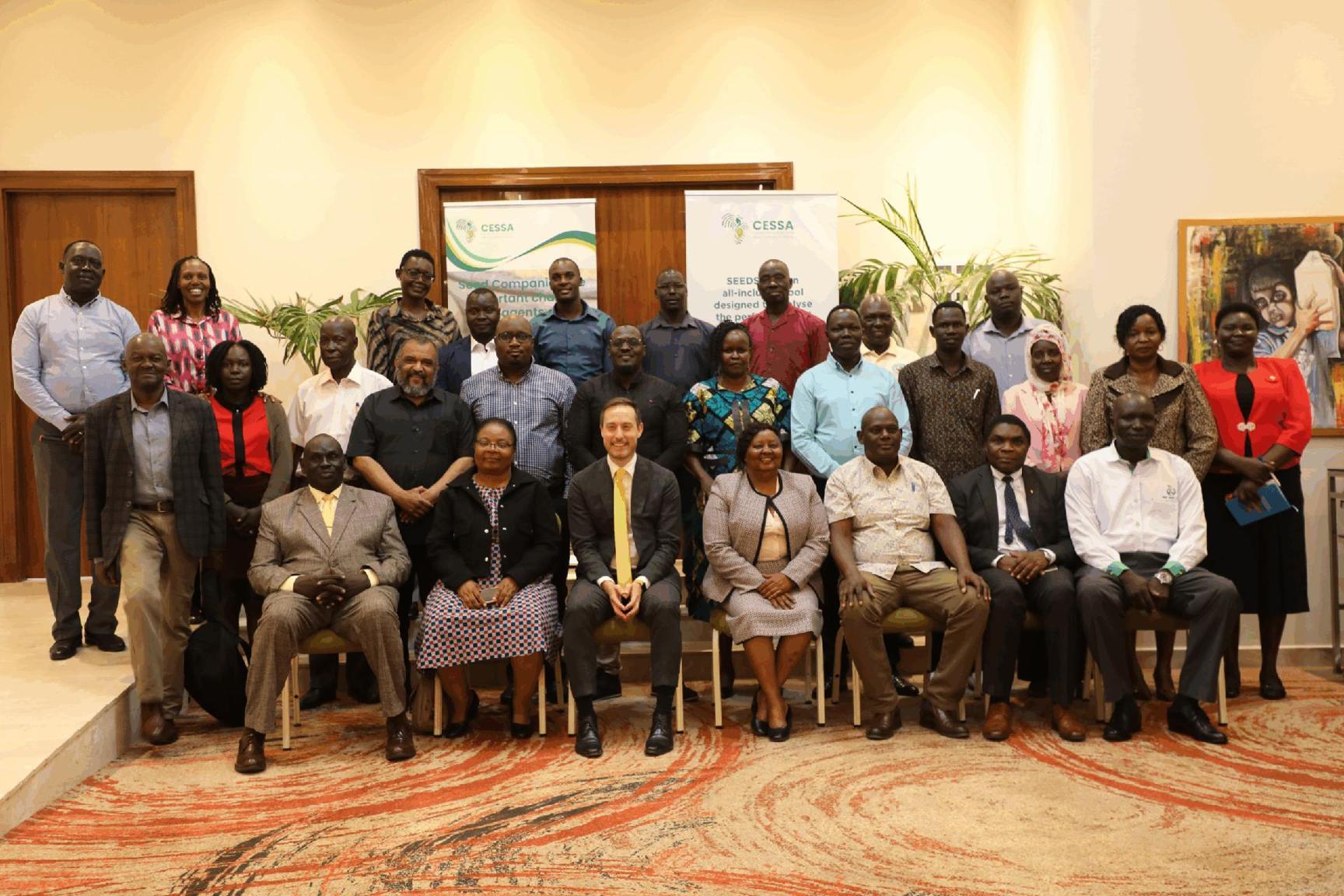Africa-Press – South-Sudan. The Pan African Agricultural Development Agency (AGRA), in partnership with the United Nations Food and Agriculture Organization (FAO), has launched a $580,000 project aimed at strengthening South Sudan’s seed sector and boosting agricultural productivity.
The initiative, titled “Support Towards Improved Seed Sector Performance and Competitiveness in South Sudan,” is funded by the Royal Norwegian Embassy in South Sudan and will be implemented using AGRA’s Seed Systems Assessment Tool (SeedSAT).
According to AGRA, the project’s overarching goal is to build a sustainable seed system that enhances productivity, resilience, and food security in the country.
The program includes a national seed sector assessment, capacity-building efforts in seed production and distribution, quality assurance improvements, policy and legal reforms, and active stakeholder engagement.
Key targets include the release of 37 climate-resilient crop varieties, the training of 12 plant breeders, and support for 10 seed companies capable of producing more than 1,700 metric tons of seed annually.
Speaking at the launch event in Juba, Dr. Jane Ininda, AGRA’s Director of Seed Systems, said the agency is re-engaging in South Sudan to revitalize the country’s seed systems.
“In South Sudan, efforts to improve the seed sector began as early as 2011 and continued until 2019,” Ininda noted.
“However, there was a pause, but now we have returned to South Sudan with the goal of advancing seed sector development. This meeting marks the inception of a program funded by the Royal Norwegian Embassy in partnership with FAO.”
She added that the project will start with a comprehensive assessment using AGRA’s SeedSAT tool, followed by the development of a national seed investment plan.
“We aim to strengthen seed companies, professionalize their operations, and expand beyond hybrid maize to include crops such as sorghum, millet, legumes, and cowpeas,” Ininda explained.
“Our collaboration with the Ministry of Agriculture will be crucial, particularly in breeding, research, and early generation seed production.”
Also speaking at the event, Professor Mathew Gordon emphasized the historical context of seed challenges in South Sudan and called for urgent reforms.
“The seed issue in South Sudan did not arise recently; it dates back to the days of a unified Sudan,” said Gordon. “Back then, seeds were often flown in and distributed to farmers, some of whom ate the seeds due to hunger. This challenge continues today.”
He stressed that South Sudan still lacks a robust seed system and urged collective action.
“Unlike our neighbouring countries, South Sudan still lacks a strong seed system,” he said.
“I urge all stakeholders to reflect on what has gone wrong and what must be done. Can we unite as a community committed to seed development and establish effective policies, legal frameworks, and systems?”
“With climate change now a major threat, the need for a climate-smart agricultural system is urgent — to help farmers in drought-affected regions catch up in seed production and boost productivity,” Gordon concluded.
AGRA, a leading African institution, is dedicated to transforming agriculture across the continent—from a struggle for subsistence into a viable, thriving sector that supports livelihoods and economic development.
For More News And Analysis About South-Sudan Follow Africa-Press






